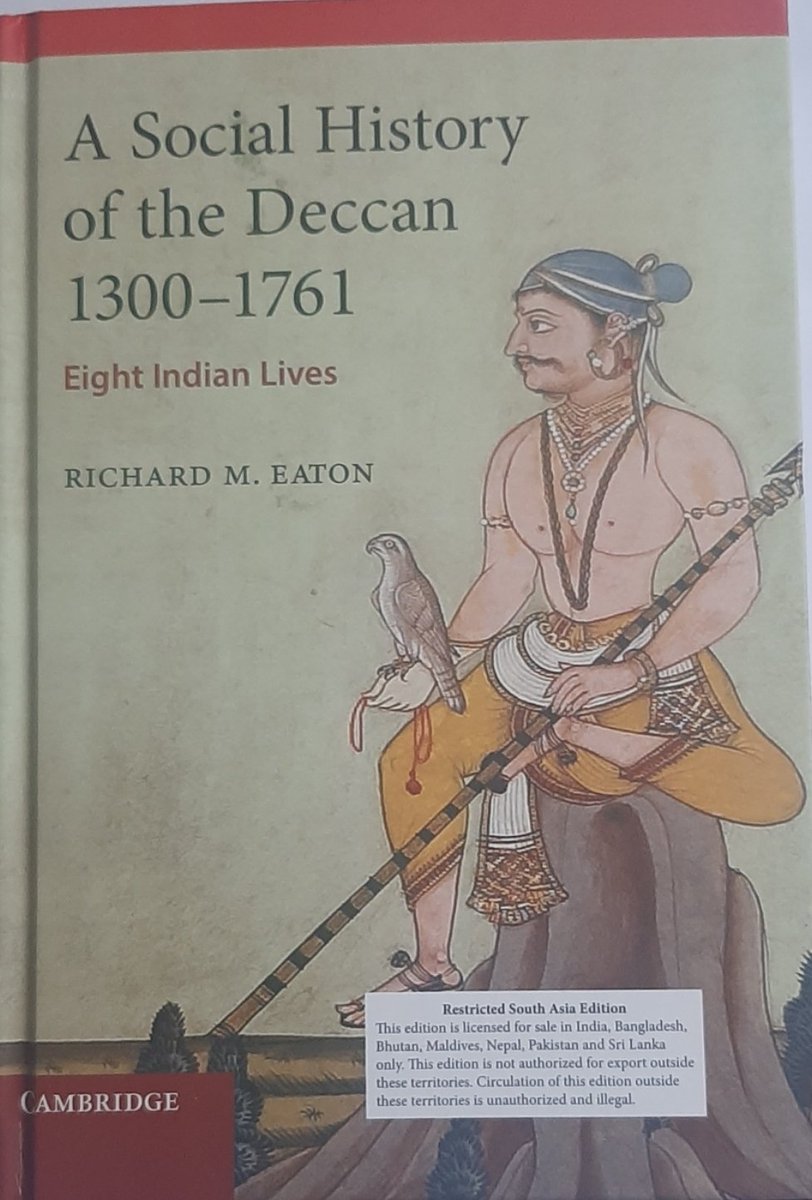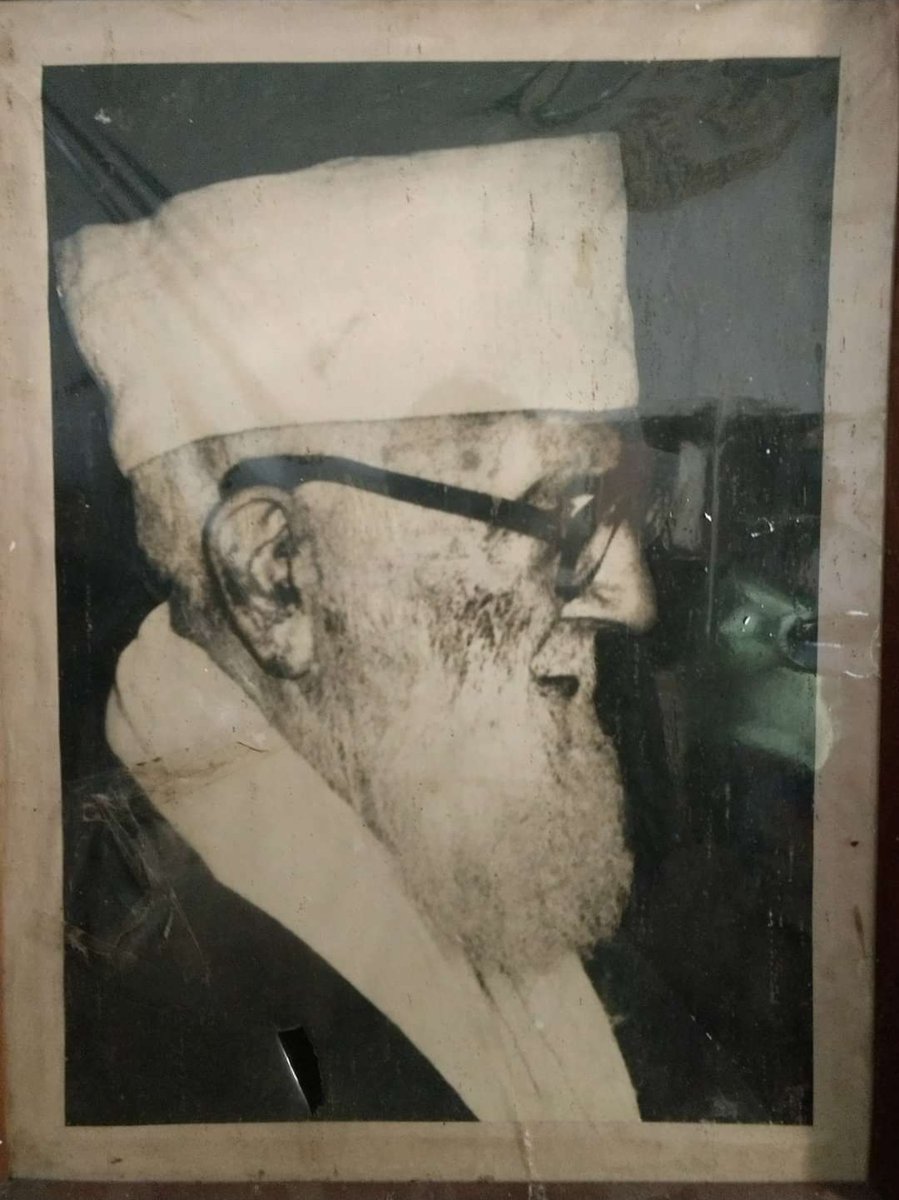
Today, March 3, is the death anniversary of #Aurangzeb Alamgir, one of the greatest #Mughal emperors. Aurangzeb, the last powerful Mughal ruler is among the most misunderstood king in Indian history. He ruled for nearly 50 years, from 1658 until 1707
#Thread
#Thread

...the last great imperial power in India before British colonialism. The Mughal empire survived another 150 years after his death, however, it saw slow and steady disintegration and after 1804 they were actually emperors in name, as British and their proxies ruled much of India.
He is loved and loathed with equal intensity by different groups of people. While many Muslims believe him to be the most pious king in the history of the Muslim India, many historians have presented his as a savage who was intent upon killing and destroying Hindus.
Multiple interpretations of Aurangzeb's life and reign over the years by critics have led to a very complicated legacy. Some argue that his policies abandoned his predecessors' legacy of pluralism and religious tolerance, citing his introduction of the jizya and other policies
...based on Islamic ethics; his demolition of Hindu temples; the executions of his elder brother Dara Shikoh, and Sikh Guru Tegh Bahadur; and the prohibition and supervision of behaviour and activities that are forbidden in Islam such as gambling, fornication,
...and consumption of alcohol and narcotics. However there are many historians who question the historical authenticity of the claims of his critics, arguing that his destruction of temples has been exaggerated.
They on the contrary claim that he built more temples than he destroyed, paid for their maintenance, employed significantly more Hindus in his imperial bureaucracy than his predecessors, and opposed bigotry against Hindus and Shia Muslims.
He was obsessed with expansion of his already huge empire and expanded it much more than that could be naturally held together. During his time Mughal Empire reached its greatest extent, ruling over nearly all of the Indian subcontinent.
During his lifetime, victories in the south expanded the Mughal Empire to 4 million square kms, and he ruled over a population estimated to be over 158 million people. Under his reign, India surpassed Qing China to become world's largest economy and biggest manufacturing power,
...worth nearly a quarter of global GDP and more than the entirety of Western Europe, and its largest and wealthiest subdivision, the Bengal Subah, signaled proto-industrialization
Audrey Truschke, while writing about the emperor says, “”Many Indians see Aurangzeb as a brutal oppressor of Hindus. He was a pious Muslim, and it is widely believed that he spent his long reign, nearly half a century, rampaging against Hindus and Hinduism.
It has been made to believe that Aurangzeb tried to convert all Hindus to Islam, and when that project failed he supposedly slaughtered millions of Hindus. However, this is just to defame him and his religion. He was just a king and obsessed with expansion of his empire”.
She goes on to add, “Hatred of Aurangzeb extends far beyond the Hindu Right in modern India. In some cases, other groups have their own reasons for despising this premodern king. Many Sikhs, for example, remember a history of animosity between early Sikh religious leaders and
...the Mughals. More widely, via school textbooks and mass media, the colonial-era image of Aurangzeb the bigot has seeped deep into Indian society. Many Indians accept and repeat misinformed ideas about this king without realising the troublesome politics behind such views”.
Truschke, who has authored a very popular book on the emperor, ‘Aurangzeb: The Man and the Myth’ says “Aurangzeb’s half-century on the Mughal throne is best understood through the pursuit and cultivation of a set of core cultural values: power, justice, piety and Mughal kingship.
Of all these, justice strikes many as a surprising way to think about a king so much defamed today. It is true that Aurangzeb’s justice, like the world in which he lived, was harsh. It featured, for example, capital punishment for state enemies, sometimes preceded by torture.
Rather than judging these acts by contemporary standards, however, a better way to understand him and 17th-century India is to grasp what he thought it meant to be a just, Muslim, Mughal king”.
“Above all else, Aurangzeb wanted to enlarge Mughal domains, and his expansion aims limited his other goals, especially his pursuit of justice. Often, we can glimpse some of the key tensions of his reign by identifying points of conflict between his unbridled imperial ambitions
...and his professed commitment to piety, just rule and Mughal kingship.For example, immediately upon taking the Mughal throne, Aurangzeb found himself in violation of Islamic law and condemned by Muslim rulers across Asia. Quite inconveniently, his father did not die from his
...severe illness in 1657 as expected. Instead, Shah Jahan made a full recovery within a few months. But by then, the power struggle among his sons could not be stopped: Aurangzeb had already seized the imperial treasury and had begun pursuing his brothers. One could kill one’s
princely brothers in Mughal India – but not one’s father, which was considered heinous. So, Aurangzeb imprisoned his father in the Red Fort in Agra. Shah Jahan remained under house arrest until his death seven and a half years later, in 1666”, says she.
She further says, “Aurangzeb struck hard against enemies who threatened integrity or peace of the Mughal state, no matter their status or religion. When another son, Prince Akbar, revolted, Aurangzeb drove him out of India, where the prince remained until his death decades later.
• • •
Missing some Tweet in this thread? You can try to
force a refresh













